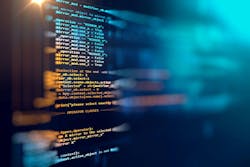Traditional Ladder Logic Vs. Newer Programming Languages
The debate between programming languages revolves around the necessity of sticking to ladder logic for ease of troubleshooting versus adopting higher-level languages for enhanced functionality and efficiency. Engineers often grapple with the integration of newer programming languages like Python and C++ alongside traditional ladder logic, as dictated by the IEC 61131-3 standard.
The solution proposed involves a modular approach, combining ladder logic for easy troubleshooting with function blocks written in preferred languages underneath, with a focus on creating modular code for saving time, manpower efficiency and improved functionality – especially for interfacing with complex components like cameras and instruments.
Despite the push towards higher-level languages driven by data and machine learning, Control Design emphasizes the importance of IEC 61131-3 as a standard for PLC code, with examples from various industries highlighting the longstanding use of such languages in control systems beyond manufacturing.
Control Design’s team of industry professionals stress the importance of maintainability, support and adherence to established standards like IEC 61131-3 in this article. The capability to upload changes from the controller and ensure long-term maintainability are considered crucial factors in system design and implementation.
Control Design shares these insights and more in the article IEC 61131-3 vs. Python/C/C++.

